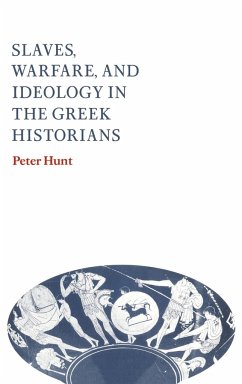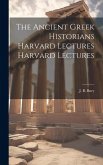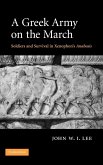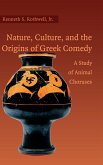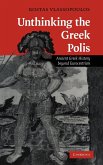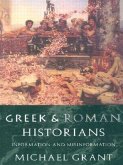This book challenges conventional opinion by arguing that slaves and Helots played an important part in classical Greek warfare. Although rival city-states often used these classes in their own forces or tried to incite their enemies' slaves to rebellion or desertion, such recruitment was ideologically awkward: slaves or Helots, despised and oppressed classes, should have had no part in the military service so closely linked with citizenship, with rule, and even with an individual's basic worth. Consequently, their participation has tended to drop out of the historical record. Focusing on Herodotus, Thucydides, and Xenophon, this study attempts to demonstrate the actual role played by slaves and Helots in warfare, the systematic neglect of the subject by these historians, and the ideologies motivating this reticence.
Table of contents:
1. Background: warfare, slavery, and ideology; 2. Herodotus: the Persian Wars; 3. Herodotus: freedom or slavery; 4. Thucydides: Helots and Messenians; 5. Thucydides: manning the navies; 6. Thucydides: encouraging slave desertion; 7. Thucydides: the ideology of citizen unity; 8. Xenophon: ideal rulers, ideal slaves; 9. Xenophon: warfare and revolution; 10. Xenophon: the decline of hoplite ideology; 11. Conclusion: Volones, Mamluks, and Confederates.
The warring Greek city-states of the classical period often found it advantageous to use slaves in their armed forces and to encourage rebellion or desertion amongst the slaves of their enemies. This book examines the actual role of slaves in war, the neglect of it by historians, and the reasons for this reticence.
A controversial interpretation of Greek military history.
Table of contents:
1. Background: warfare, slavery, and ideology; 2. Herodotus: the Persian Wars; 3. Herodotus: freedom or slavery; 4. Thucydides: Helots and Messenians; 5. Thucydides: manning the navies; 6. Thucydides: encouraging slave desertion; 7. Thucydides: the ideology of citizen unity; 8. Xenophon: ideal rulers, ideal slaves; 9. Xenophon: warfare and revolution; 10. Xenophon: the decline of hoplite ideology; 11. Conclusion: Volones, Mamluks, and Confederates.
The warring Greek city-states of the classical period often found it advantageous to use slaves in their armed forces and to encourage rebellion or desertion amongst the slaves of their enemies. This book examines the actual role of slaves in war, the neglect of it by historians, and the reasons for this reticence.
A controversial interpretation of Greek military history.

